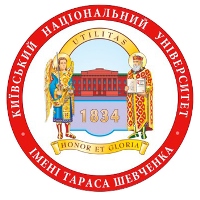TRANSLATING OF A FRAGMENTED MILITARY POETIC TEXT INTO GERMAN: PRAGMATIC ASPECT (ON THE MATERIAL OF ARTUR PAVLENKO’S POEM «THREE»)
DOI:
https://doi.org/10.17721/folia.philologica/2025/9/4Keywords:
Artur Pavlenko, Volodymyr Tymchuk, military discourse, text, sign, pragmatic aspect of translation, text interpretation, linguistic analysisAbstract
The article considers pragmatic aspect of rendering Artur Pavlenko's poem “Three” into German. Rendering in a foreign language of literary images and ideas encoded in signs and constituting the dialectical unity of the text of the author's military poetry, whose individual style is characterised by internal integrity despite the visual fragmentation of the word, symbolism, is a certain challenge for the translator, and such a text requires a thorough linguistic analysis at the stage of its interpretation. The military discourse in contemporary Ukrainian poetry raises the necessity of revising approaches to stylistic analysis of texts, considering their differences between military and non-military authors. The basis of this study is the German vector of the project of Lieutenant Colonel of the Armed Forces of Ukraine, poet and translator Volodymyr Tymchuk “In principle erat Verbum. Ukraine: Poetry of War”. The texts of civilian authors are most frequently characterised by transverse metaphorisation, suggestion or reflection. The texts of military poets are marked by polysemy, spatial and temporal fixation, suggestion, reflection, a combination of suggestion and reflection, and fragmentation of linguistic elements. Promotion of the Ukrainian cause in the free world is the result of work and an honourable mission of a translator. The degree of rendering in the translation text of the relevant meanings of the original lexical unit, and thus semantic, as well as pragmatic, shades and intralinguistic meanings, is a necessity and prerequisite for a high-quality translation. The complexity of the translation of the analysed poem lies in the need to identify the deep extra-textual meaning already at the stage of decoding information, preservation of the text’s form, since it is the key to understanding the ideal, the author's sublimation, with the help of which the addresser (author), despite the visual fragmentation of the text, achieves its internal integrity, thus realising the aesthetic function of the literary work, communicating with the addressee (reader).
References
Selivanova, О.О. (2008). Suchasna linhvistyka: napriamzy ta problemy [Modern linguistics: perspectives and problems]: Pidruchnyk. Poltava: Dovkillia-K [in Ukrainian].
Potebnia, O.О. (1985). Estetyka i poetyka [Aesthetics and poetics]. Kyіv: Mystetstvo [in Ukrainian].
Urys, T.Y. (2023). Dyskurs viiny u suchasnii ukrainskii poesii [The discourse of war in contemporary Ukrainian poetry]. Visnyk nauky ta osvity, 5 (11), 246–257 [in Ukrainian].
Ahieieva-Karkashadze, V.O. (2021). Poetychnyi pereklad iak forma interpretatsii tekstu [Translation of poetry as a form of text interpretation]. Nova filolohiia, (82), 9–14. https://doi.org/10.26661/2414-1135-2021-82-1 (30.03.2025) [in Ukrainian].
Havryliuk, N.I. (2024). Poesiia polehlykh: Artur Pavlenko. Zbruch [Poetry of the Fallen: Artur Pavlenko]. Retrieved from https://zbruc.eu/node/118419 (30.03.2025) [in Ukrainian].
Hjelmslev, L. (1974). Prolegomena zu einer Sprachtheorie. Übersetzt von Rudi Keller, Ursula Schärf, Georg Stötzel [Prolegomena to a theory of language]. München: Max Hueber [in German].
Mykhailiuk, О.V. (2020). Znak – tekst – informatsiia (vidminnosti, sporidnenist, vzaiemoobumovlenist) [Sign – text – information (differences, kinship, interdependence)]. Filosofiia ta politilohiia v konteksti suchasnoi kultury [Philosophy and political science in the context of contemporary culture], 12 (2), 53–60 [in Ukrainian].
Erll, A., Gymnich, M. (2015). Interkulturelle Kompetenzen [Intercultural competences]. Stuttgard: KlettVerlag [in German].
In principio erat Verbum. Ukraina: Poesiia viiny (2024). Antolohiia ukrainskoiu ta frantsuzkoiu movamy [In principio erat Verbum.Ukraine: Poetry of War. Anthology]. Volodymyr Tymchuk (Ed.). Lviv: Vydavnytstvo Astroliabiia [in Ukrainian and French].










